Nepal’s elected fascist government unleashes brutality: A nation silenced by bullets, tear gas, and complicity
The civil society’s collapse is perhaps the most tragic. In a nation where the people once toppled a king, the lack of resistance to this elected tyranny is a bitter irony. The NHRC’s silence is the final nail in the coffin of Nepal’s democratic dream.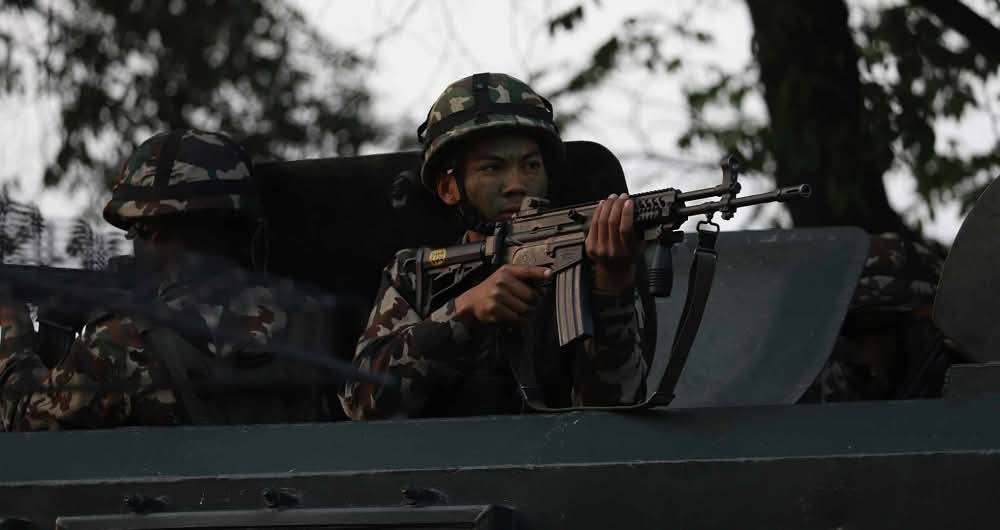
KATHMANDU: Nepal, a nation once celebrated for its transition from monarchy to a federal republic, now stands at the precipice of authoritarian ruin under the iron fist of the Nepali Congress-supported government led by Prime Minister KP Sharma Oli. On March 28, 2025, the streets of Kathmandu bore witness to a chilling spectacle of state-sponsored violence as unarmed citizens, rallying for the restoration of the monarchy, were met with a hail of bullets and expired tear gas.
Two lives were snuffed out—one a protester felled by a police bullet, the other a journalist incinerated in a building torched by the chaos—while countless others were wounded, some not even part of the demonstration. This was no mere crowd control; it was a calculated assault on the constitutional right to peaceful protest, a right enshrined in Nepal’s 2015 Constitution but trampled under the boots of an elected regime that has shed all pretense of democracy.
The Oli led government, propped up by an unholy alliance with Nepali Congress, has revealed its true colors: a fascist entity cloaked in the garb of electoral legitimacy. The March 28 crackdown was not an isolated incident but the latest in a series of excesses that expose the regime’s contempt for its own people.
A senior Nepal Police officer revealed that, a day before the demonstration on March 28, 2025, a meeting took place between Prime Minister KP Sharma Oli, Nepali Congress President Sher Bahadur Deuba, and Maoist Chairman Pushpa Kamal Dahal. During this meeting, they reportedly agreed to deploy excessive force to suppress the protest. “We only follow the directions given,” the officer stated, indicating that the police actions were carried out under explicit orders from the top leadership.
Hundreds of rounds of live ammunition and over 700 canisters of expired tear gas—chemical weapons past their safe use—were unleashed on a crowd that dared to sing the national anthem in defiance. The brutality was indiscriminate; police fired on bystanders, turning Kathmandu into a war zone where dissent is met with death. This is not governance; it is tyranny, a grotesque betrayal of the democratic ideals Nepal fought to establish after 2008.
When protesters began singing the national anthem, police responded with bullets and tear gas to crush the demonstration. The government’s response has been swift and merciless toward anyone who dares to speak out. Nabaraj Subedi, an 87-year-old figurehead of the pro-monarchy movement and coordinator of the newly formed “United People’s Movement Committee for the Restoration of Monarchy,” was placed under house arrest within days of the protests. His crime? Leading a movement that challenges the regime’s narrative. Scores of others have been rounded up, dragged into detention centers, their voices silenced behind bars.
The message is clear: criticize the government, and you will pay with your freedom—or your life. Journalists, activists, and ordinary citizens who have dared to whisper dissent on social media or in private conversations now live under the shadow of immediate arrest, a chilling reality that has turned Nepal into a de facto police state.
What makes this descent into fascism even more galling is the deafening silence of those tasked with safeguarding justice and humanity. Nepal’s National Human Rights Commission (NHRC), an institution meant to be the bulwark against such atrocities, has sat mute, its inaction a damning indictment of its irrelevance.
When unarmed citizens like Sabin Maharjan and journalist Suresh Rajak fell to state violence, when siblings Dinesh Khatri and Rebika Khatri—mere bystanders—were caught in the crossfire, the NHRC did not issue a single statement, let alone demand an investigation. Constitutional expert Dr. Bhimarjun Acharya has minced no words, declaring that the commission “has lost all meaning and relevance.” Its failure to act suggests not just incompetence but complicity—a puppet of a regime that brooks no opposition.
The so-called civil society, often lauded as the conscience of the nation, has proven equally spineless. Where are the protests from the self-proclaimed guardians of democracy? Where are the press conferences, the petitions, the marches? Nepal’s civil society, once vocal during the monarchy’s final days, has retreated into a cowardly hush. The media, too, has faltered. While a journalist perished in the flames of March 28, his colleagues have largely refrained from naming the government’s actions for what they are: a fascist purge.
Dr. Acharya’s scathing critique rings true: “We—media, civil society, and ‘living people’—have failed miserably.” This failure is not accidental; it is the result of a climate of fear where speaking out invites swift retribution. The arrest of dissenters is no longer a threat—it is a daily occurrence, a tool to keep the press and activists in line.
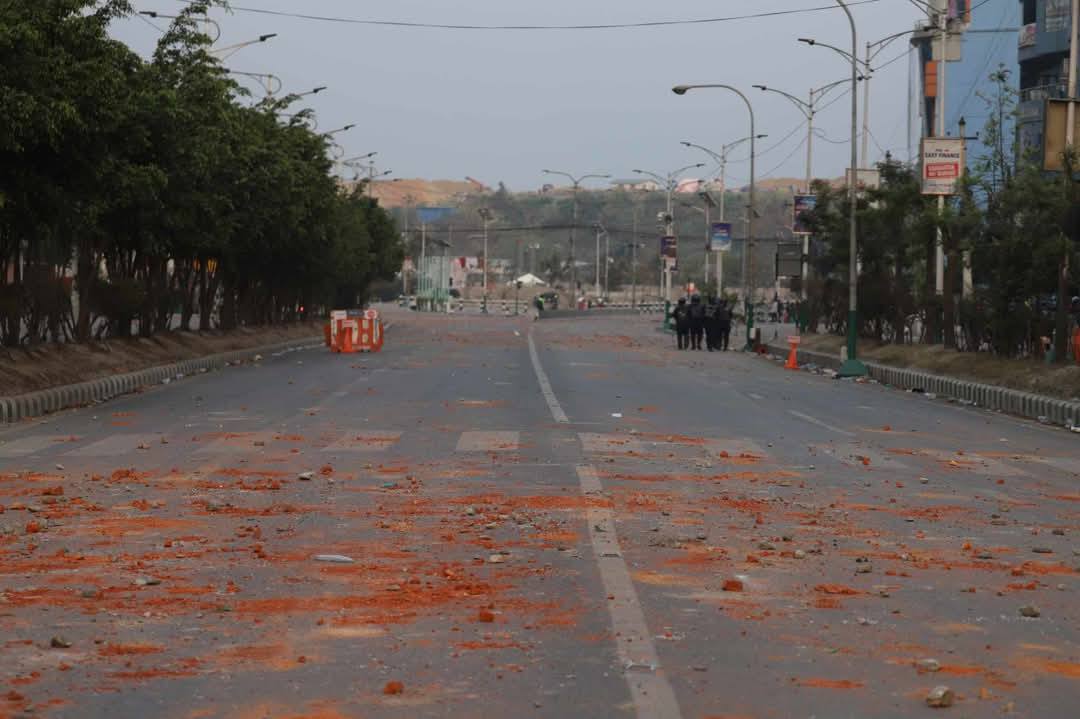
International Hypocrisy: Foreign Missions Silent on Nepal’s State Terror
Perhaps most infuriating is the apathy of the international community, whose hands are stained with the blood of Nepal’s faltering democracy. The western power, including the United States, the United Kingdom, the European Union, and India—nations that poured resources and rhetoric into establishing Nepal’s federal republic—have turned a blind eye to the government’s atrocities.
These powers, which once trumpeted their role in dismantling the monarchy, now watch silently as the regime they helped birth devours its own people. Their soft power, wielded through aid and influence, built a system that has saddled Nepal with a staggering NPR 3 trillion in public debt, plunging the nation into economic despair. Yet, when that system turns tyrannical, they offer no condemnation, no calls for accountability.
Foreign missions in Kathmandu, usually quick to issue statements on lesser matters, have not uttered a word about the March 28 killings or the ongoing arrests. This silence is not neutrality—it is tacit approval, a betrayal of the Nepali people who were promised democracy but delivered despotism.
The government’s fascist tendencies are not confined to the streets. Its alliance with Dahal’s Maoists—a party with its own history of violence—has created a political machine that thrives on suppression. The regime has ignored demands from smaller political parties for an impartial investigation into the March 28 violence, dismissing them with the arrogance of a dictatorship secure in its impunity.
The use of expired tear gas, a detail that underscores the state’s disregard for human life, has gone unaddressed. Reports of police targeting non-protesters have been buried, and the detention of Subedi and others signals a broader campaign to crush the pro-monarchy movement before it can gain traction. This is not about maintaining order; it is about preserving power at any cost.
Nepal’s descent into this nightmare is a direct consequence of the federal republic’s hollow promises. The system, imported and bankrolled by foreign powers, was sold as a panacea for the country’s woes. Instead, it has birthed a monster—a government that uses its electoral mandate as a license to kill, maim, and imprison. The NPR 3 trillion debt is not just a financial burden; it is a shackle that keeps Nepal beholden to the very nations now ignoring its cries for help. When citizens protested this economic strangulation, they were met with bullets, not dialogue. The Nepali Congress backed regime has made it abundantly clear that dissent, whether over monarchy or money, will be met with violence and incarceration.
The human cost of this fascism is staggering. Families mourn the dead, while the wounded nurse their injuries in a climate of fear. Those who speak out, like Dr. Acharya, risk becoming the next targets. His call for an impartial investigation—“Let’s at least demand it from the government!”—is a desperate plea in a nation where such demands are met with handcuffs. The arrest of critics is now routine; a single tweet, a whispered complaint, or a public speech can land you in a cell. The government’s message is unambiguous: conform or disappear.
The international community’s refusal to act is a stain on its moral credibility. These nations, which once lectured Nepal on democracy, now stand exposed as hypocrites. Their silence emboldens the Oli regime, giving it free rein to escalate its crackdown. The absence of statements from human rights organizations, both domestic and global, is equally indefensible. Where is Amnesty International? Where is Human Rights Watch? Their failure to condemn the killings and arrests suggests either indifference or a calculated decision to avoid upsetting the geopolitical apple cart. Nepal, it seems, is a sacrificial lamb in their grand game.
The civil society’s collapse is perhaps the most tragic. In a nation where the people once toppled a king, the lack of resistance to this elected tyranny is a bitter irony. The intellectuals, the NGOs, the activists—all have retreated, leaving the streets to the police and the prisons to the dissenters. The NHRC’s silence is the final nail in the coffin of Nepal’s democratic dream. If the body tasked with protecting rights cannot muster a whisper, what hope remains?
Nepal stands at a crossroads.
The government’s fascist grip tightens with each passing day, its arsenal of bullets and arrests growing ever more brazen. The pro-monarchy movement, for all its flaws, has exposed the rot at the heart of this regime—a rot ignored by a complicit human rights commission, a cowardly civil society, and an indifferent international community. The blood of March 28 stains not just the streets of Kathmandu but the hands of all who refuse to act. In this Nepal, to speak is to risk everything, and to remain silent is to surrender. The question is: how long will the world watch as a nation drowns in its own democracy’s ashes?



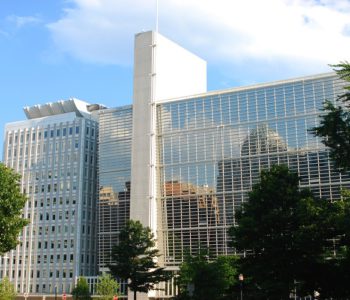





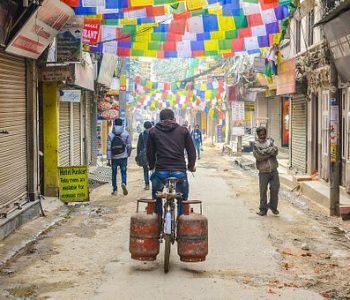

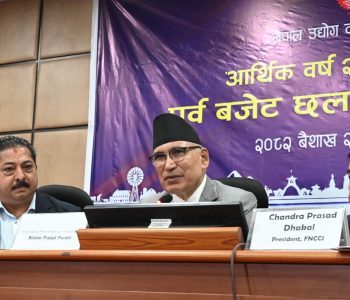
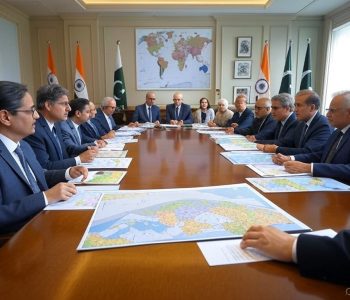
Facebook Comment